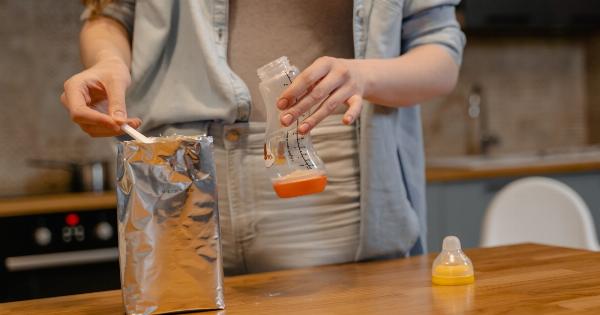After giving birth, new mothers require time to heal physically and emotionally. This period, known as the postpartum period, is crucial for both the mother and the baby’s health.
While the length of postpartum hospital stays used to be determined by tradition, it is now more influenced by medical guidelines and insurance policies. However, there is still some debate around how long a postpartum hospital stay should last.
The importance of postpartum hospital stays
Postpartum hospital stays provide numerous benefits for new mothers and their babies.
These stays allow medical professionals to closely monitor and assess the health of both the mother and the baby, ensuring any potential complications are promptly addressed. This close observation is especially crucial in the first few days after childbirth when the risk of complications, such as postpartum hemorrhage or infections, is relatively high.
During the hospital stay, healthcare providers can also guide new mothers on proper breastfeeding techniques and offer assistance with any difficulties they may encounter.
They can provide essential education on infant care, including bathing, diapering, and safe sleeping practices. Moreover, new mothers can take advantage of the support and guidance from experienced nurses who can address their concerns and provide reassurance during this vulnerable period.
Additionally, postpartum hospital stays provide an opportunity for the mother to rest and recover from the physically demanding process of childbirth.
Giving birth places a significant amount of stress on a woman’s body, and the hospital environment can offer a controlled setting for recovery and pain management.
The evolving guidelines
Over the years, the recommended length of postpartum hospital stays has changed. Historically, new mothers would spend around a week in the hospital after giving birth, allowing for adequate rest and observation.
However, in recent years, the average length of stay has dramatically decreased.
Today, most vaginal deliveries result in a 24 to 48-hour hospital stay, while cesarean deliveries usually require a 72 to 96-hour stay. These shortened stays are mainly influenced by insurance policies and the desire to reduce healthcare costs.
With the advancement in medical care and improved knowledge about postpartum care, it is believed that most women will recover well within these shorter time frames.
However, some argue that shorter hospital stays may not provide enough time for adequate recovery and adjustment to motherhood. While complications may be less likely to arise after childbirth, they are not entirely eliminated.
Extended hospital stays can help ensure the early detection and management of any potential issues, minimizing the risks for both the mother and the baby.
Factors influencing the length of stay
Several factors can influence the length of a postpartum hospital stay:.
1. Type of delivery:
As mentioned earlier, the type of delivery plays a significant role in determining the length of the hospital stay. Vaginal deliveries generally require a shorter stay compared to cesarean deliveries.
This difference is because cesarean deliveries involve major abdominal surgery, which necessitates a more extended recovery period and close monitoring of the incision site.
2. Maternal health:
The overall health of the mother also has an impact on the length of the hospital stay.
If the mother has pre-existing health conditions, experienced complications during pregnancy or delivery, or requires additional medical care, the healthcare provider may recommend a longer stay to ensure adequate recovery and monitoring.
3. Baby’s health:
The health of the newborn is another crucial factor to consider.
If the baby requires specialized medical attention, such as neonatal intensive care, the mother may be encouraged to remain in the hospital until the baby is stable and able to be discharged. Additionally, healthcare providers may extend the mother’s stay to observe and assist with breastfeeding difficulties or issues with jaundice.
4. Support system:
The presence of a supportive and capable caregiver at home can influence the postpartum hospital stay.
If the mother has a reliable support system, healthcare providers may feel more comfortable discharging her earlier, as there will be someone available to help with day-to-day tasks and provide emotional support.
The importance of individualized care
While guidelines for postpartum hospital stays can provide a general framework, it is essential to consider each mother’s unique circumstances. Every woman’s experience with pregnancy, childbirth, and recovery is different.
Therefore, the length of the hospital stay should be individualized and based on the specific needs and preferences of the mother and baby.
Healthcare providers should evaluate the overall well-being of the mother and baby, taking into account their physical and emotional health, any complications experienced during childbirth, and the availability and support system at home.
A collaborative approach between the woman and her healthcare team can help determine the optimal length of the postpartum hospital stay.
The need for post-discharge support
Regardless of the length of the postpartum hospital stay, it is crucial to ensure appropriate post-discharge support for new mothers.
The transition from the hospital to home can be challenging, and many women experience the “baby blues” or even postpartum depression during this period.
Healthcare providers should provide adequate education on postpartum self-care, monitor for signs of postpartum complications, and advise on when to seek medical assistance.
Additionally, establishing follow-up appointments with healthcare professionals within the first few weeks after discharge can provide further support and reassurance for new mothers.
Conclusion
The length of a postpartum hospital stay should be determined by individualized care and consideration of various factors, including the type of delivery, maternal and baby’s health, and the availability of a support system at home.
While the average length of stay has decreased in recent years due to cost and medical guidelines, it is crucial not to compromise the well-being and safety of new mothers and their babies.






























